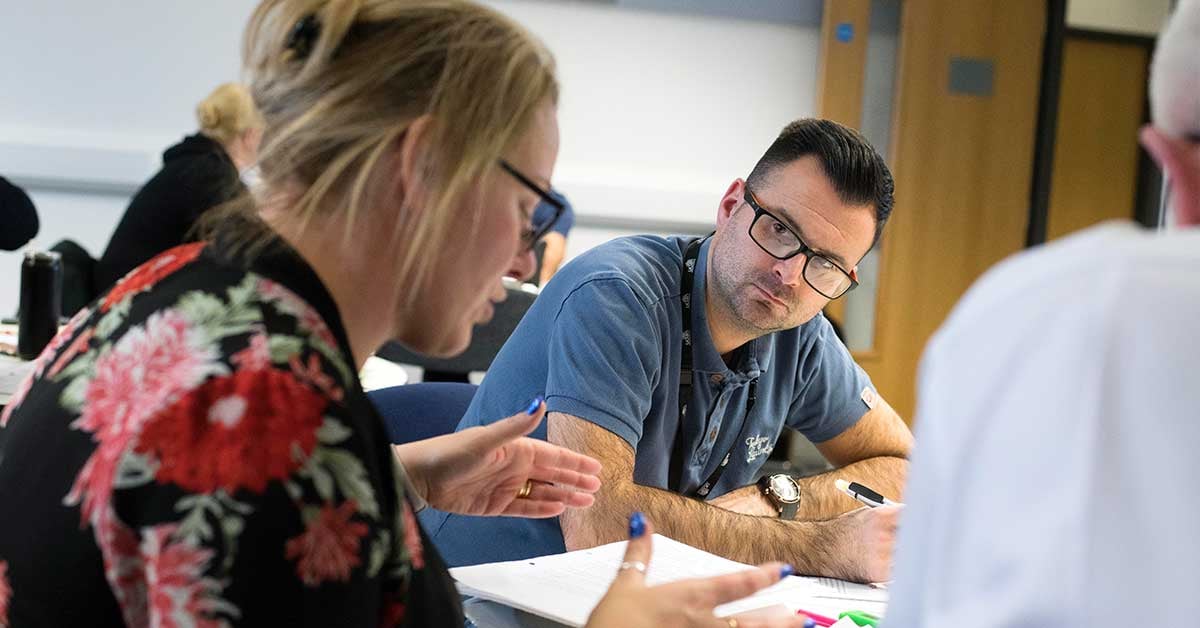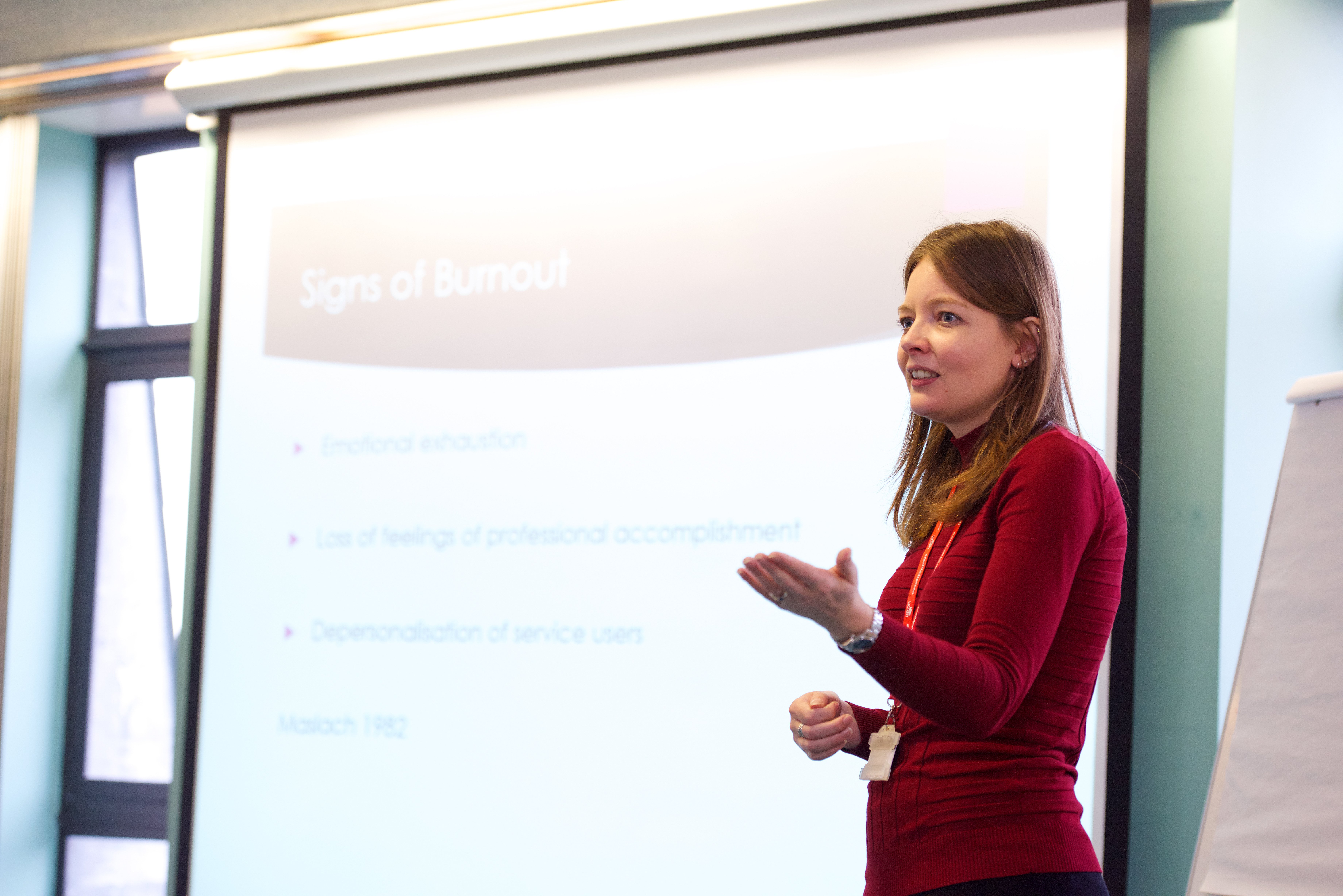
What's the difference between social policy and social work?
Social policy, social work, social welfare, social justice…if you’re struggling to understand the differences between all this similar terminology, don’t worry, you’re not alone!
Our latest blog lists each of the formal definitions, followed by a simple explanation of each of the activities, the people or professions who carry them out and routes to each career.
We hope it helps you find the right fit when researching your future study options.
Dictionary definition
Social policy: "Social policies are government policies (both central and local) that are directed towards meeting the social needs of the population (social needs usually being interpreted as welfare needs), with the list including policies concerning social security, health, housing, education and (sometimes) law and order."
Social work: "The professional activity carried out by trained social workers to help individuals, groups, and communities to enhance or restore their capacity to achieve full social functioning and create societal conditions favourable to this goal."
Social welfare: "The wellbeing of society or the community at large. In economic terms, social welfare is an aggregation of the welfare or utility of the individual members of the society."
Social justice: "The objective of creating a fair and equal society in which each individual matters, their rights are recognised and protected, and decisions are made in ways that are fair and honest."
Want to understand why social policy is so relevant today? Read our handy guide:
Activities
Social policy: The academic study of the causes of social problems and what governments attempt to do about them.
It also refers to the actual policies, principles, guidance, regulations, plans, programmes and activities relating to the economy, education, healthcare, law enforcement and social welfare that are directed by governments, voluntary or non-governmental organisations.
This encompasses the full range of social problem, including our relationship with the EU, citizenship and immigration.
Social work: The practice of helping individuals to overcome difficulties/social problems they may face. This involves directly working individuals who are considered to be vulnerable to bring about social change to help improve their standard of living.
They may support people with issues such as drug and alcohol problems, mental distress, family and conflict problems, children in care or older people who are recovering from serious illness or injury.
Social welfare: Rather confusingly, this and the terms ‘social care’ and ‘public health’ sometimes refer to social services, including social work and other wellbeing services, such as those delivered by voluntary organisations e.g., Age Concern, Mind, or the UK’s free National Health Service (NHS).
More often or not, social welfare refers to the actual state of wellbeing of individuals, both adults and children in relation to specific social problems. It is measured through, for example, standards of living, housing and health, educational attainment, personal and social relationships, levels of unemployment, employment opportunities, family income, benefits and child poverty.
Social justice: Social justice is the right of everyone to enjoy the same economic, political and social rights, regardless of race, socioeconomic status, gender or other characteristics.
A moral, often passionate, expression for creating fairness and justice in society, historically, activity has ranged from the women’s right to vote and civil rights movement, to today’s #BlackLivesMatter or LGBTQ rights.
Social justice activity can take many forms, for example, through social media campaigns, protests, demonstrations or lobbying to change legislation.

Typical jobs
Social policy: Charity officer, Civil Service administrator, Government social research officer, Health service manager, Housing manager/officer, Local government officer, Policy officer, Politician, Politician’s assistant, Social researcher.
Social work: Social worker.
Social welfare: Adult guidance worker, Advice worker, Arbitrator, Careers adviser, Chaplain, Charity officer, Civil service administrator, Community development worker, Counsellor, Housing manager/officer, Local government officer, Police officer, Prison officer, Probation officer, Social researcher, Social worker, Solicitor, Youth worker.
Social justice: All of the above plus: Border Force officer, Detective, Paralegal, Lobbyist, Political risk analyst, PR officer.
For more information on career options, see our MA Social Policy careers page.
Education
Social policy: The best route into an academic or professional career in social policy is through an undergraduate or master’s degree, like our MA in Social Policy, though not all roles within civil service (government) require training.
Social work: In the UK, to become a social worker, you need to study a three-year undergraduate or two-year postgraduate degree in social work that is approved by the Health and Care Professions Council (HCPC). You will also need to pass a Disclosure and Barring Service (DBS) check.
Social welfare / Social justice: Since neither is a professional practice, the roles associated with these activities can be trained or untrained.
Develop the expertise needed to establish a successful career in social welfare provision and public service with our part-time, online MA in Social Policy. Choose from three start dates a year:
Related Resources
See all resources
Key skills to succeed in social policy
Gain insight into the key skills you need to succeed in a social policy career, and discover how an...
Read the story
Social policy and economic policy: What’s the difference?
Discover the differences between the two key policies, as well as real-world examples of the impact...
Read the story
How do different countries address social reform?
Discover how different countries tackle social reform in this insightful blog post. Explore case...
Read the story
